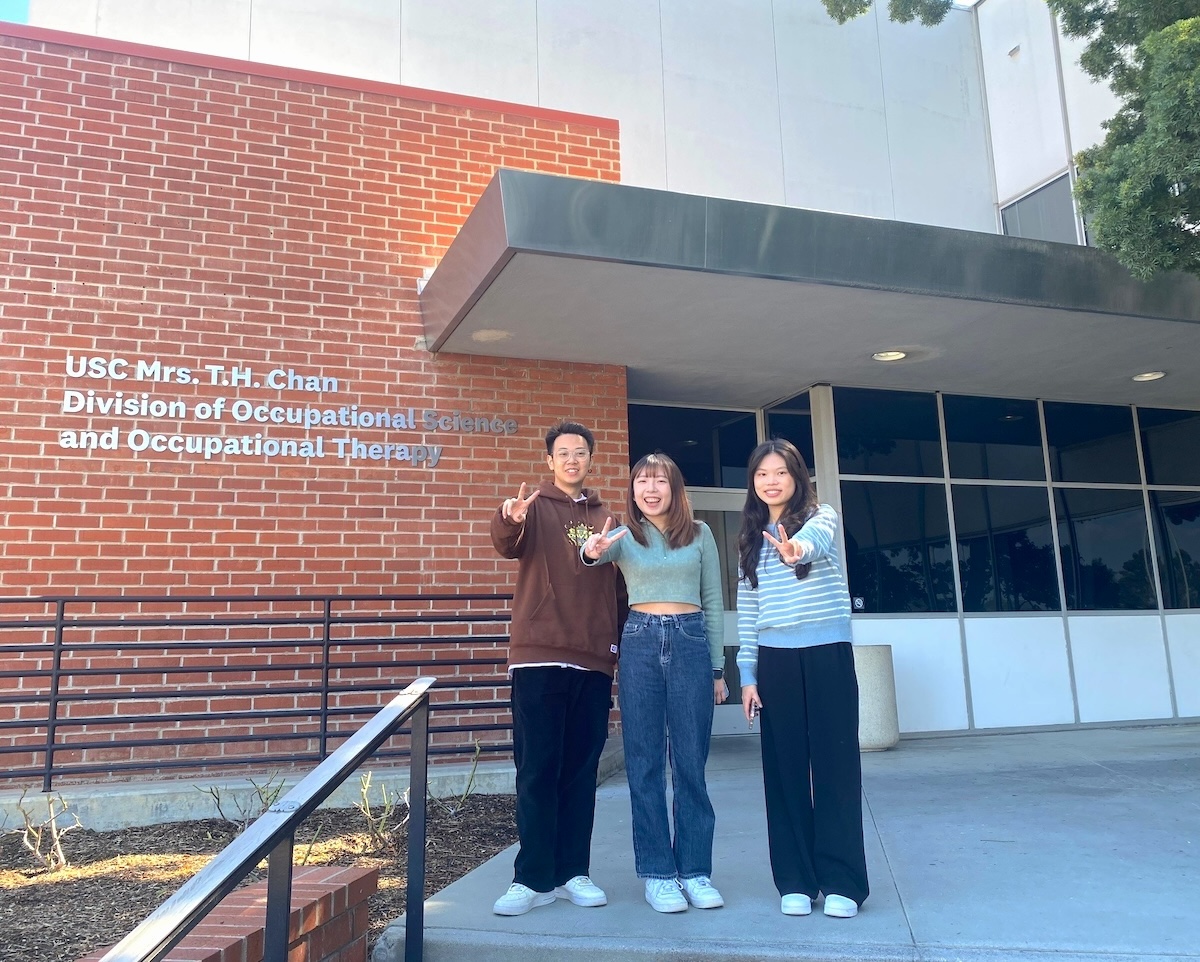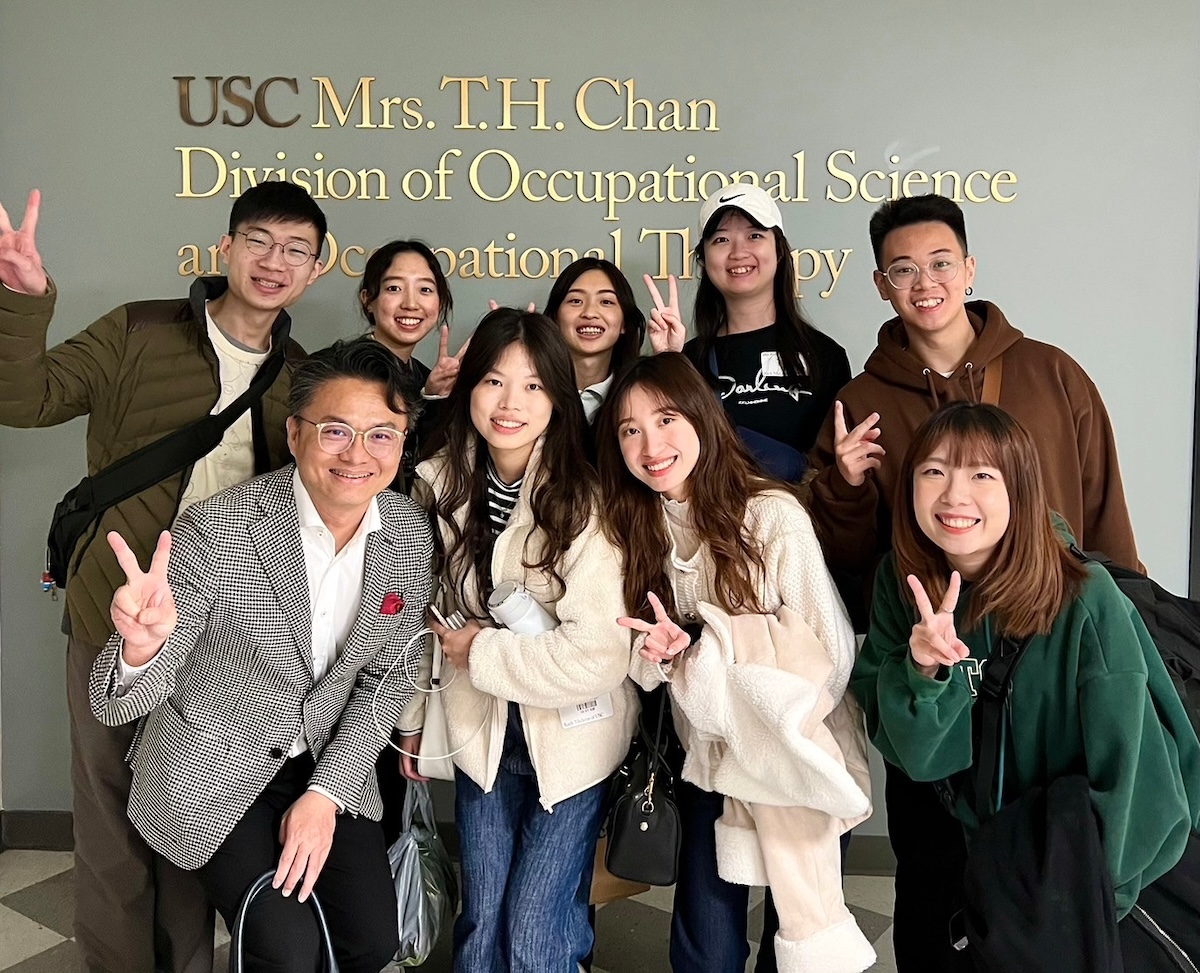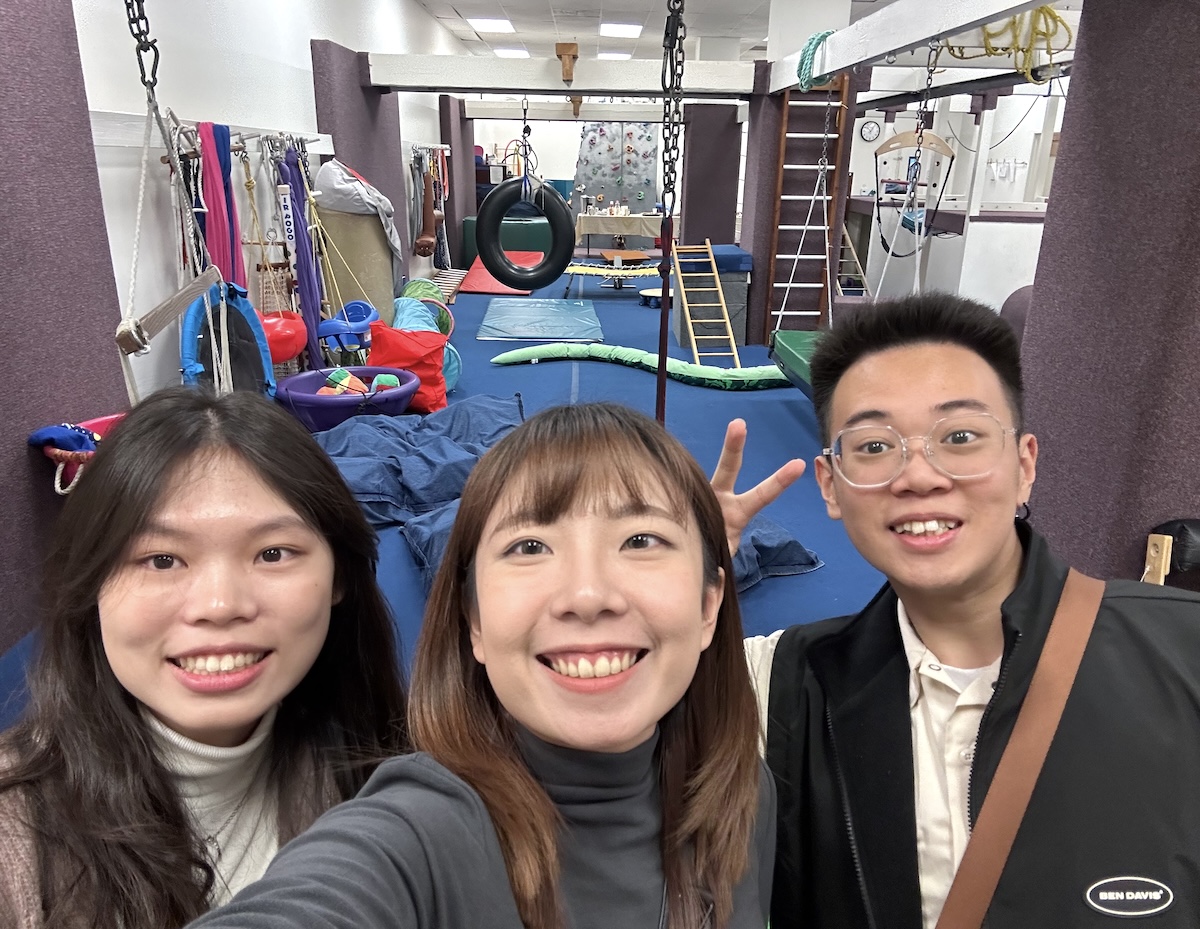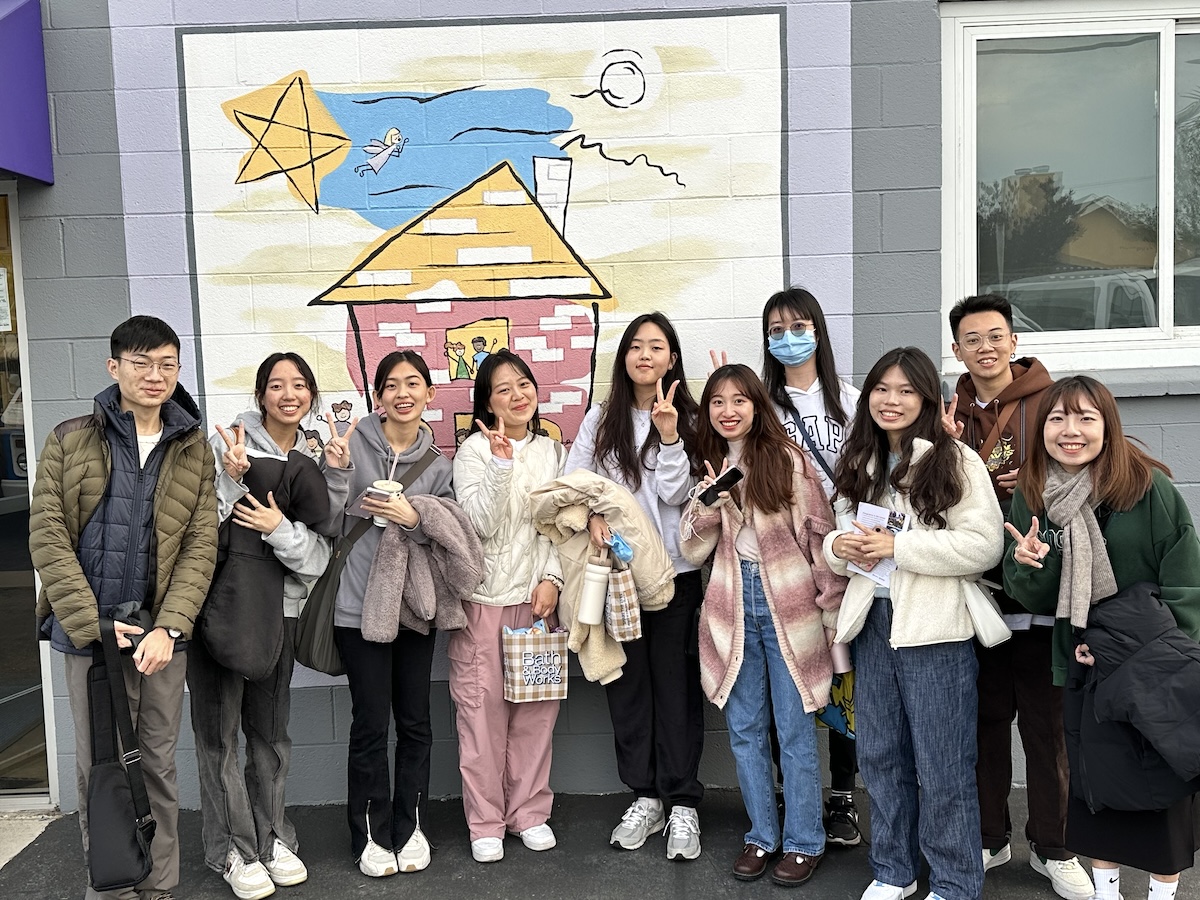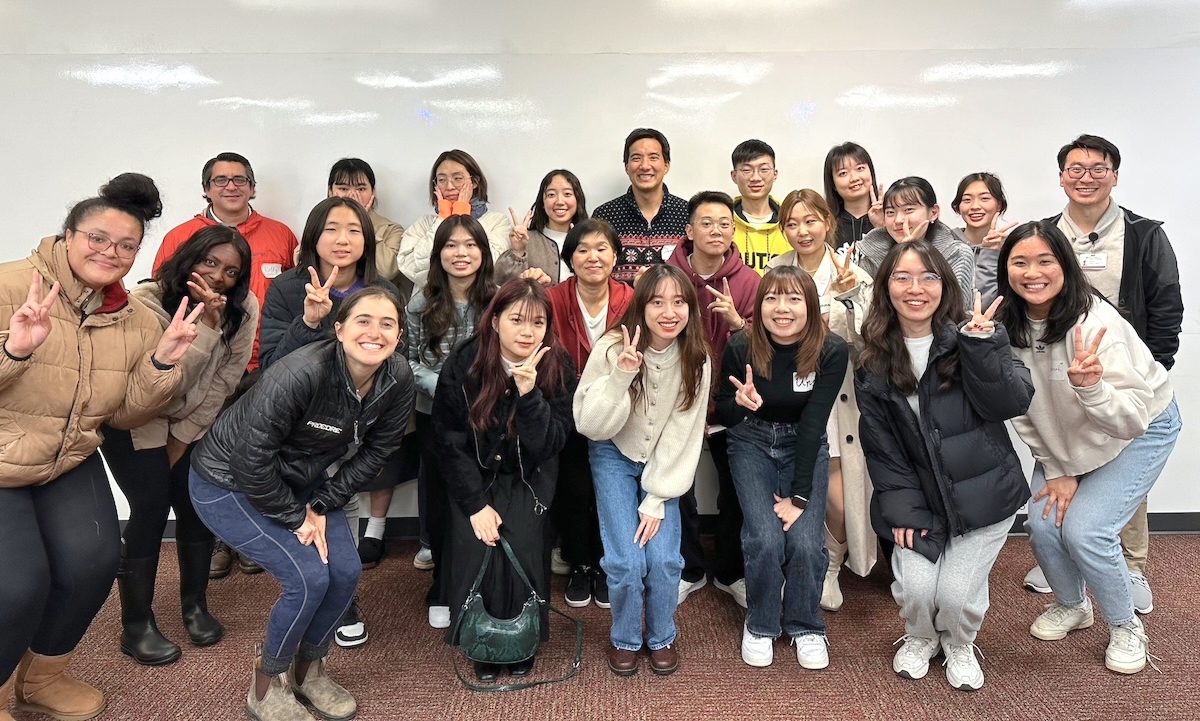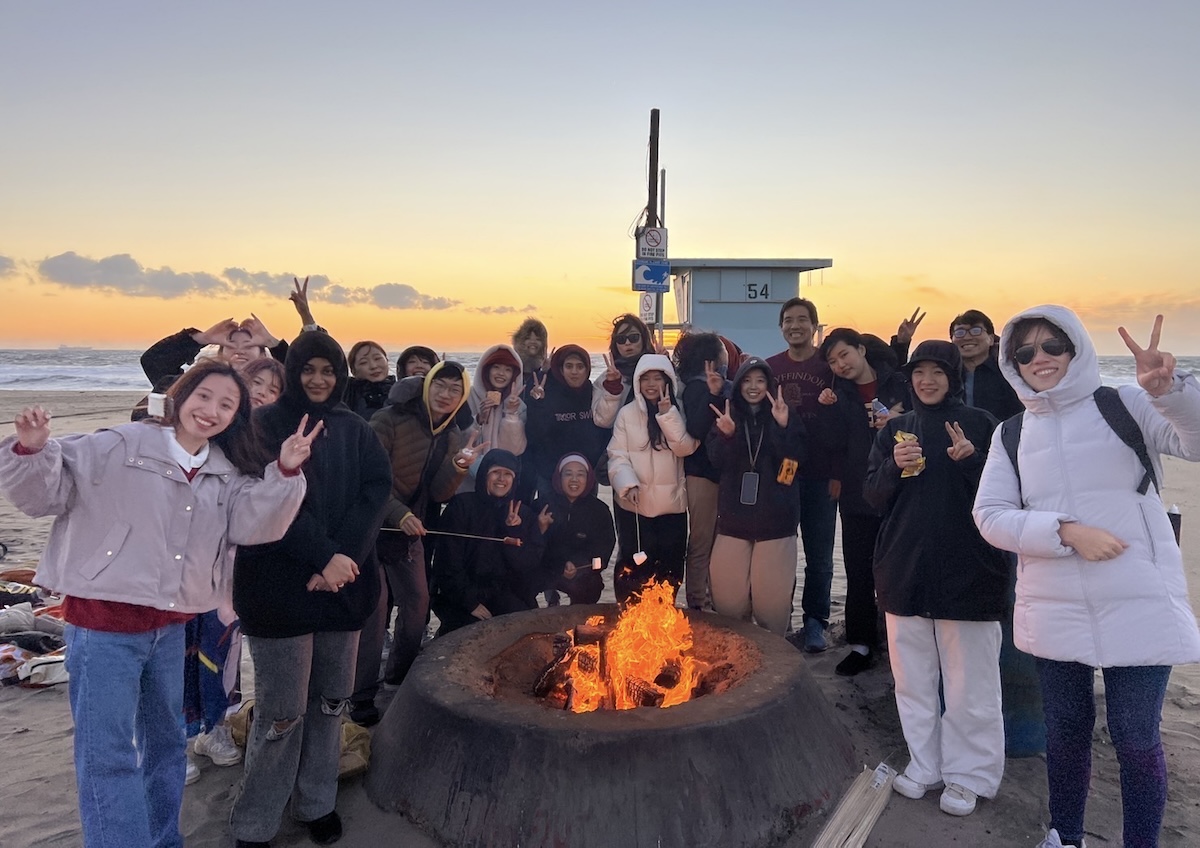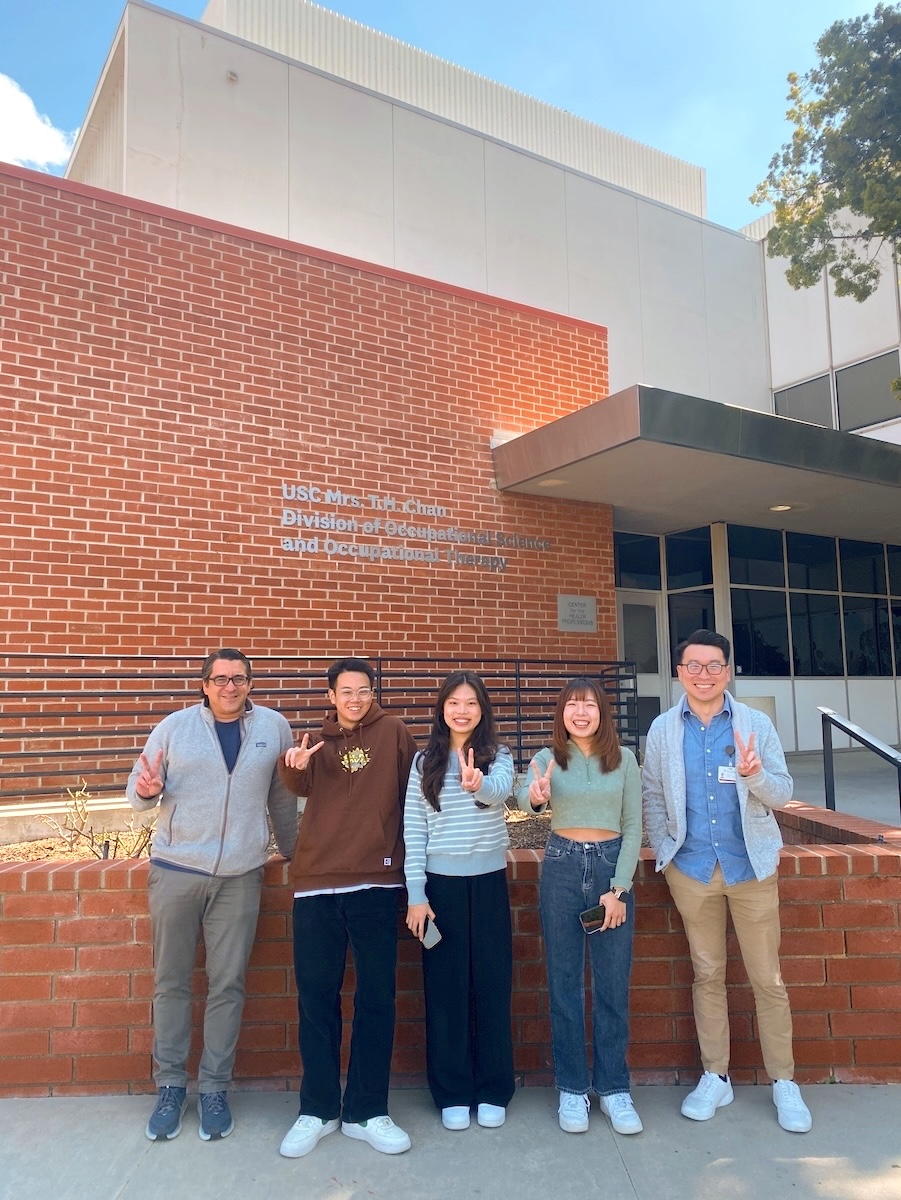Student Blog
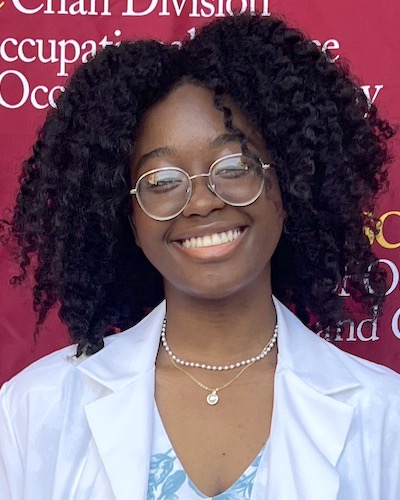
To Fieldwork, Thanks for Everything! ⟩
April 19, 2024, by Jaida
Fieldwork. It can be the best of times, it can be the worst of times. No two experiences are the same which can be both a blessing and a curse. A little bit before this time last year, I was starting off my first fieldwork experience at an inpatient acute hospital - talk about being nervous! The fact that any moves I made with the patient directly affected their wellbeing had me shaking in my boots! If I could go back in time, I would tell myself, “You’ve got this!”
Here’s what each of my fieldwork experiences has taught me and some takeaways that I hope can be helpful for you:
- Adult Rehab: Being in a fast paced environment can be nerve-wracking, so don’t forget to relax and enjoy the experience! Rely on your Fieldwork Educator to help build your clinical reasoning skills. They are a resource so use them! You’ll also have numerous resources from class and lab time, as well as your instructors, to help facilitate your success. While a level I fieldwork is more observation based, you are able to ask your educator questions to deepen your understanding about certain diagnoses. For example, if there’s a certain condition you learned in class that you’re wanting to know more about, your Fieldwork Educator can give you great insight as to how they have navigated it from their experiences.
- Mental Health: They just want to be treated like people, so don’t see them for what condition they have, but rather the potential of who they can become. Building rapport is key so if you’re a people person, this is your time to shine! Being in this setting can allow you to work on those interpersonal skills. Your classes at USC will teach you how to use your own therapeutic use of self, so feel free to ask your instructors how to help develop this skill more.
- Pediatrics: FUNctional treatments are key! This means that majority of the sessions will look like the therapist is playing with the child, when they are actually working on certain skills to work on developmental milestones. Even though they are a child, they also deserve some autonomy when it comes to figuring out what activities they want to do during their session. It’s not the end of the world if a child gets upset during sessions; if anything, this now gives you a sense of their likes/dislikes and how to problem-solve going forward.
Geriatrics: Leave the ageism behind! Older adults can teach you so much about life. Don’t be afraid to ask questions about their lives; you never know what interesting things they’ll tell you. In doing so, you might also be able to provide insight on what activities the patients like to do. Continue to think outside the box and explore new avenues for engaging in treatment.
Working with these amazing people has allowed me to understand what true productive aging looks like with the members that come have fun here!
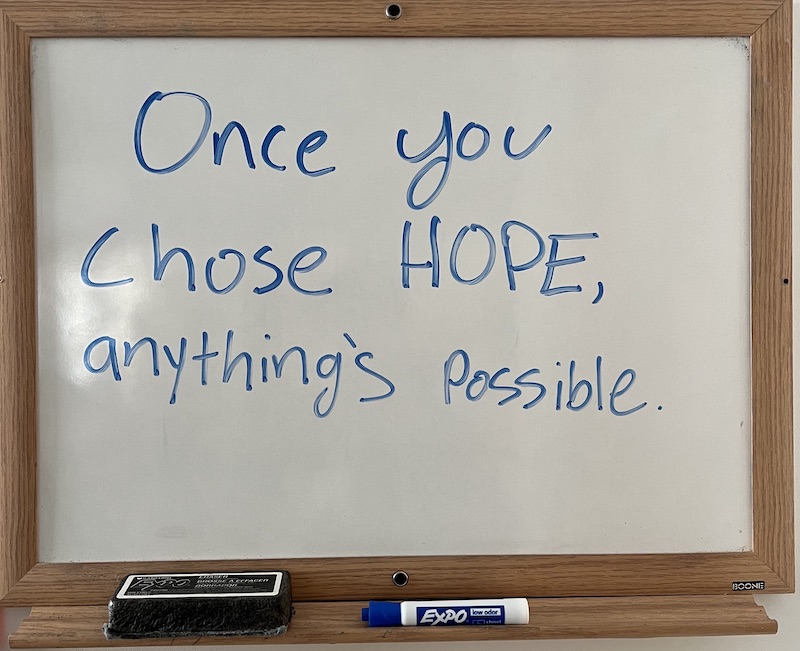
Loved reading the messages displayed on the whiteboard while at an inpatient acute setting; always brightened my day!
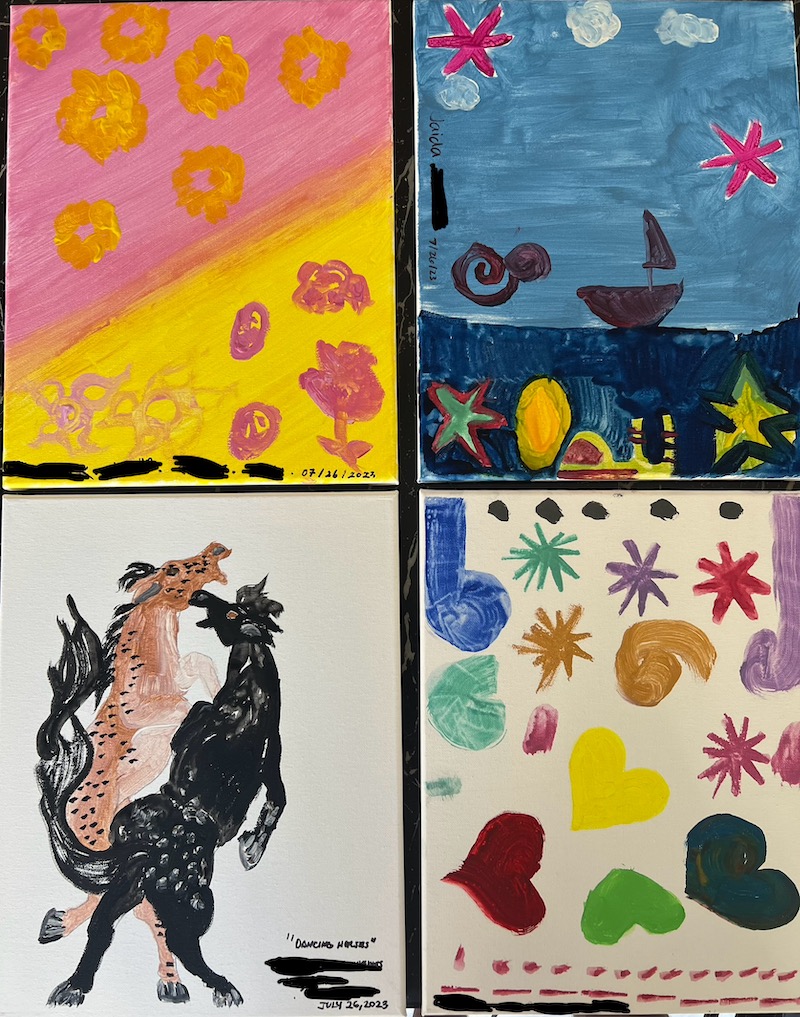
Had so much fun doing collaborative paintings with the residents on my last day at a board and care setting
I am so grateful for all of the interactions I’ve had and lessons I’ve learned from each of my Level I fieldwork sites. Remember to engage in self-care as you go through your different immersions and give yourself some grace. Cheers to Level I and on to Level II!
⋯
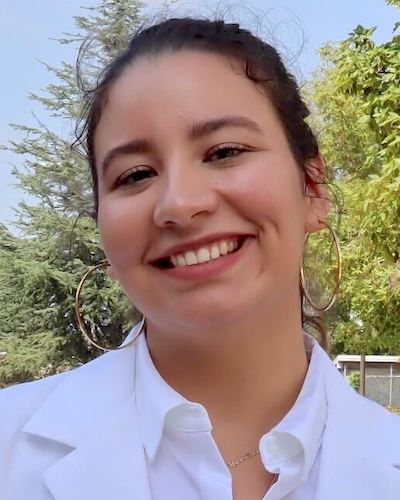
Lessons I Did NOT Expect OT School to Teach Me ⟩
April 2, 2024, by Natalie
Classes Life Hacks School/Life Balance
Hey everyone! I am back with a new list that I hope you will relate to, save, and refer back to when needed. Looking back at my last two years, these lessons I have learned have helped me grow as a person, as a professional, and as a future clinician. These lessons are not listed in our “Program Outcomes” or “Learning Objectives”. They are lessons I think everyone eventually learns, but that I learned when I felt challenged and pushed past my comfort zone.
Grades do not matter as much as you think. The Division has strict rules about the grade students are required to earn in any course in order to have those course credits apply towards earning the degree. According to the USC Chan Division of Occupational Science and Occupational Therapy (2023) student handbook:
The minimum passing grade in all OT required courses is C or above . . . To be eligible for graduation, a graduate OT student must achieve a final overall cumulative GPA of 3.0 or above AND a GPA of 3.0 or above on all courses applied to the entry-OTD degree (p. 15).
As long as you reach that required grade point average, there is no need to stress about every grade point percentage. No future client will ever ask you what grade you got on your adult rehab midterms; they will just be happy that you know what you need to know in order to help them. That being said . . .
You know so much more than you think. There have been too many times when I stress over an upcoming exam or feel a little reluctant to raise my hand in class because I feel unsure about my response, and more often than not, I come out doing pretty well! I do study and prepare for those exams and practicums though, I just usually feel I need a few more days to review. Personally, I have noticed that as long as I complete my readings and assignments and pay attention in class, my brain retains so much more than I realize.
Do not let your imposter syndrome get the best of you. You are capable, smart, and will be an amazing OT one day. You belong here at the top OT program in the nation, and you have the necessary tools and skills to earn your degree. When the imposter syndrome does hit, because it always does at some point, remember why you chose to pursue OT and what motivates you the most to always show up. Turn on music that helps you feel confident and powerful and push past the feelings of not being capable.
Remember that you are your harshest critic. It is important to keep in mind that you are likely the only person who expects you to do amazing in every single aspect of your life all the time. Obviously, give your best in everything that you do but recognize that your best may fluctuate depending on how many things you have going on at any given time. I read something once that said, “If one day, all you can give is 40% and you give that, you gave your 100% that day.” Being able to prioritize tasks and dividing your energy and focus in order for you to complete everything you have to get done is a really difficult but crucial skill that grad school will teach you if you have not learned it already.
Do NOT compare yourself to others. Everyone will tell you this tip from the start and it is easier said than done to learn, but the sooner you stop comparing yourself to others, the better. Save your energy and mental health and just do you.
Know yourself well. Know your strengths, your limitations, what strategies work for you, what type of help you need and when you need that help in order to keep yourself afloat. Also keep in mind that the strategies that work for you may change based on the situations or assignments you have going on. Adapt as needed and trust your gut.
Put your oxygen mask on first. With how busy grad school can get, it is so imperative that you take care of yourself first before anything else. You need to ensure you do what is needed for yourself in order to put your best effort forward in the work, activities, events, organizations, and relationships you are a part of. Taking care of yourself helps you avoid burnout and trust me, it is such a better option than trying to overcome the burnout.
Mistakes happen and are not the end of the world. In fact, mistakes help you learn! I have learned the most when I make mistakes because as human beings, we don’t like being wrong. It is better to make mistakes in class or during OT school than it is when you are out in the field later on (. . . and even then, those mistakes are okay too! Acknowledge the error, do your best to fix it, and move on!)
Trust the process. A lot of different things in OT will stress you out and may feel out of your control. Sometimes the material in a course is not coming together the way you thought it would. The course material will come together eventually (again, this varies per person: ask for help as you feel you need). The fieldwork process may be particularly stressful if you want any one specific site or practice area. You will get the experience required in order to earn your degree and sit for the NBCOT, even if it is not exactly what you want. In my mental health immersion I wanted to be placed in an inpatient psychiatric hospital and was placed in a Transitional Supported Housing Program. Looking back, I would not trade that experience for anything in the world. Every single alumni member I have spoken to, whether they are on the faculty or not, have told me to trust the process, after assuring me that they too felt similarly when they were a student.
Generalist versus Specialist. This one probably feels out of place and is very OT school specific compared to the rest of these lessons — I know what these words mean, but in terms of being in OT school, I had to learn what that meant for what I was learning in class. There are so many different specialties that OTs can gain knowledge in and it is hard to remember that as an OT student I need to focus on learning enough about everything in order to pass the certification exam as well as be able to practice in almost any setting that I choose. My time for specializing in specific topics will come, as will yours.
There you have it! I hope this newfound knowledge inspires you and helps you feel prepared for when these lessons inevitably sneak up on you. If you have any questions or would like to chat, feel free to reach out to .(JavaScript must be enabled to view this email address) and I will get back to you as soon as I can! Fight on!!
⋯
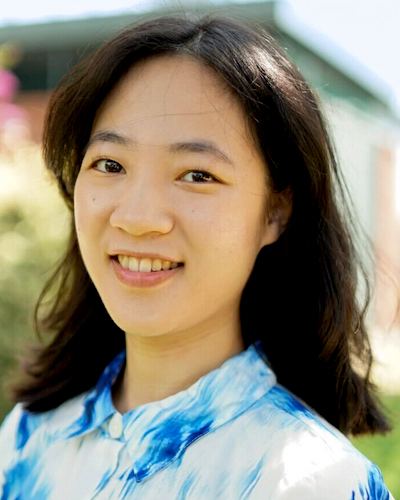
Academic Differences I Found and How I Adapted ⟩
March 26, 2024, by Cindy
As a practicing occupational therapist from Taiwan, I was worried about stepping into a master’s degree program in the US. I did not know what to expect and how to prepare for the context transition. Therefore, I would like to share some academic differences I experienced. I also want to share some strategies and resources that helped me.
Difference:
- Interactive classes vs. lecture-oriented classes: The classes I attended were mostly lectures during my undergrad. Now, I find most PPMA classes are designed to let us learn by interacting with classmates and instructors. There are often in-class discussions or practices. I enjoyed those discussions, and I learned so much through them. However, I still find myself hesitating to raise my hand to answer questions or share my thoughts during group discussions.
- Critical analysis rather than one answer: The learning objectives behind the assignments are usually not just memorizing knowledge. Most assignments or questions in my classes do not ask for single answers. I spent more effort elaborating on how and why I chose this approach and got to the conclusion. Some assignments we had were appraising research articles, designing a treatment plan, and analyzing an occupational injustice situation.
- Reading materials: One thing I find both enjoyable and challenging is the amount of reading. Most classes have plenty of reading materials to support our learning. Sometimes, we are required to read through some materials before class to better participate in class. I love learning about the analysis of research outcomes and newly formed theories from those readings. However, it usually takes me plenty of time to read the articles.
- Different dynamics between instructors and students: It took me the most time to adjust to new ways of interacting and communicating with our instructors. I find the relationship between instructors and students less hierarchical. It makes asking the instructors questions or asking for support easier for me. Regardless, it is still a struggle for me to call my instructors by their first names.
- International perspectives: My classmates came from different regions and countries with various cultural backgrounds and clinical experiences. We have many opportunities to learn from others and share our perspectives. For example, in the occupational science class, we often have rich discussions about occupational injustice because of our various experiences. Despite the conversations being fruitful, we spend more effort clarifying with each other about their perspectives due to our diverse backgrounds.
- Language: For me, English is my second language. Even though I met the English proficiency criteria, fully understanding lectures, participating in small talks, reading multiple articles, writing assignments, and expressing our thoughts in group discussions do not come to me naturally. However, it pushed me to learn and use English. Our English level advanced really quickly in this all-English environment.
Strategies and Resources:
- Notice the differences: Being aware of the differences has helped me adjust more effectively. Talking to classmates and knowing what they were experiencing helped me better identify the differences I felt. It also showed me I was not navigating through this new context alone.
- Review syllabi: I realized too late that I should utilize course syllabi! The instructors will introduce the courses with the syllabi at the beginning of every course. The syllabi list the weekly content of the classes and assignments and their due dates. With this information, I could mark the assignment due dates, presentation dates, and exam dates on my calendar. I could plan the study schedule accordingly, which made me feel less stressed.
- Review assignment instructions and rubrics: I highly recommend reading through the assignment instructions and rubrics fully before you start doing the assignments. I can find what I should focus on in the assignment from the instructions. I can also know the details I need to accomplish to meet the assignment expectations based on the grading rubrics. Knowing the instructions and grading rubrics has saved me from spending extra time figuring out the assignments and worrying about what score I would get.
- Division and university resources: There are various academic resources in the Chan Division and USC. In our division, the Global Initiatives Office provides academic support hours, writing workshops, and other resources to support international students. There is also after-hours support held by the pedagogy residents in our division. In addition, there are more academic resources at USC. My classmates and I often access resources through the Kortschak Center website. They provide a semester calendar that contains every week of the semester, major school events, and holidays on one page. It helped me plan out my schedule more efficiently.
- Reach out to your instructors: Asking instructors questions was a bit challenging for me since this is not something I am used to. However, I learned that the instructors are happy to help and discuss with me. I feel less stressed about communicating my needs and queries with them. I have gone to my instructors to discuss the readings, ask for assignment expectation clarification, and even guidance for what elective courses to choose.
It takes time and effort to adapt to a new environment. Everyone may have diverse experiences influenced by various factors, such as culture, being in an advanced-level degree program, language, roles, etc. Despite the uniqueness of everyone’s journey, resources are plentiful to support people’s needs. What helped me the most was learning to communicate with my instructors, utilize the resources in the division and at school, and share the challenges I face with my classmates so we can support each other. Here at USC Chan, you don’t need to walk alone!
⋯

Come Learn About Scholarships!! ⟩
March 11, 2024, by Natalie
The price tag for attending USC Chan (or honestly, any graduate school program) can be a pretty large stressor. Don’t get me wrong, it pays to be at the top OT school in the nation, but that does not invalidate the stress that tuition can cause. Luckily, the faculty and staff understand this and there are scholarship opportunities for students, both within and outside of the Chan Division listed on the USC Chan website. Here are a few resources that are available to students and are definitely worth checking out:
USC Chan Internal scholarships: This is the link to the internal scholarships available from the Division. For prospective Entry-Level OTD students who are applying to USC Chan, these scholarships typically open around the same time the program application opens and for the largest scholarships, the applications is due at the same time as your program application. There are additional scholarships that you can also apply for in your second and third years of the program. To see the scholarships and the eligibility criteria for each one, select your program and year from the drop down list, select the scholarship you are interested in learning more about or applying for, and read all about it!
External Scholarships that USC Chan shares with students: this is a list of various scholarships that the Division put together in order to share with students. These are external to the Division, meaning students who are interested in applying for them should take a close look at the information available, ensure the information is still current, and apply according to the instructions listed for each one. I have noticed that the external scholarships seem to be more likely to require letters of recommendation than the internal scholarships. Just another great reason to try to make great connections to the faculty!
Financial Aid Office: The Financial Aid Office has their own website (specific to graduate level students at that) with a ton of useful information that students should keep themselves up to date with. Regularly checking this website will be useful to stay on top of different scholarships available to students as well as important information such as when FASFA is due. One of the tabs on this website leads students to be able to filter through scholarships
Scholarship Universe: This is an online tool that is available to students to see the many scholarships available to them. Students can filter through all of the scholarships listed to determine eligibility and easily keep track of the scholarships they are in the process of applying for or have applied for recently once they have signed into their account.
A couple of other notable scholarships directly associated with USC (thought not Chan) include the USC Norman Topping Student Aid Fund and the Town and Gown of USC Scholarship. Both scholarships are merit-based scholarships and they have so much aid available to distribute far and wide!
If all else fails, keep in mind that there are so many different scholarships available in so many different ways. I have learned about a ton of scholarships through social media. It is as simple as finding accounts whose target audience are students, or searching for posts that include “#scholarships”. Some scholarships are shared with students via emails from Chan faculty. There are scholarships available through AOTA that are OT-specific too! Keep an open mind to all the possible places you can use to look for scholarships and never be afraid to apply to as many as you possibly can. There is so much more money out there waiting to be awarded! Best of luck, please feel free to reach out to us at .(JavaScript must be enabled to view this email address) if you have any questions!
⋯
Too Fun To Go Back Home!!!! ⟩
March 4, 2024, by Global Initiatives Team
By Jenny Yi-Chen Lu, Una Yu-Chen Tsai, John Yuan-Zhen Zhang
Edited by Princesse De Rossignol, 2nd-year E-OTD Student, and Xiaorong Wang, 1st-year E-OTD Student
We are undergraduate OT students from Kaohsiung Medical University, Taiwan. We’re here at USC for a five week exchange program to get to know more about OT and observe how they treat their patients clinically in America. During these five weeks, besides joining the class, we also had such a great time hanging out with the students here and those from Korea.
During this one month, we had some lessons, such as, motor control, sensory integration, Lifestyle Redesign® and more. Among all the lessons, the most impressive thing for us is the way professors teach and the students interact. Specifically, during the motor control class, the professor invited the stroke patients as a demo. During the class, the professors showed students how to stretch the tight muscles. That is a totally new experience for us to learn. On the other hand, most of the students are so active in asking questions and doing group discussion in the classes. Compared to here, the way we have our classes in Taiwan is more lecture-based. Honestly, most of the things that happen here help us expand our vision.
We also did some site visits and learned many different approaches to make the clients feel better and achieve their well-being. Some examples are hippotherapy and animal assisted therapy in Children’s Ranch, and the PECK model in Kensington Sierra Madre. After these visits, we got to know how the therapist here actually treats their patient with “occupation-based” ways. We appreciate this special opportunity we have, because during this month, we have seen the difference between the US and what we do in Taiwan in clinical practice. We believe that we still have a lot of room for improvement in how we can provide service to our clients.
Beside attending classes and site visits, we also participate in lots of social events with USC students and the Korean visitors. We had so much fun at the welcome party, chatting with each other and having delicious food. Thanks to the Global Initiatives team, we had the chance to walk around in Old Town Pasadena. We visited the ice cream shop there, and looked at the American style shops, creating unforgettable memories together.
At the end of the visit, we had our goodbye party on the beach. It was really cool to set up a camping fire on the beach, and we also had our first ever s’mores in life. We enjoyed a cozy and relaxing atmosphere by the seashore and took lots of photos with friends before we part ways. It is the most amazing experience that we have ever had.
Overall, the exchange program has allowed us to expand our global vision about occupational therapy and experience so many great things, including new friendships and amazing views in California. We have learned the differences between what OTs do in their countries internationally and these make us start to think about how to improve the medical environment in Taiwan to be more “occupational”.
⋯






